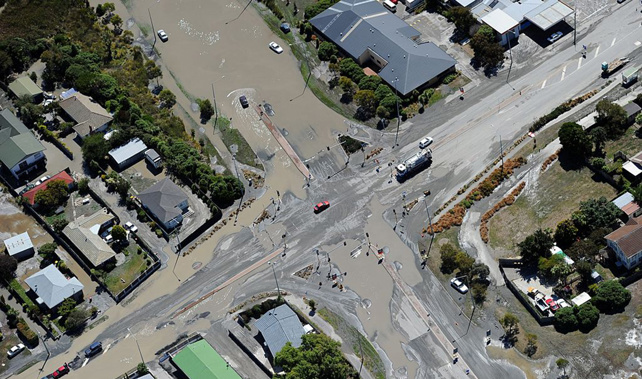
The Canterbury earthquakes and thousands of aftershocks did not lead to more academic failure, or an increase in early school leavers, a study has found.
Despite numerous disruptions over two years, there wasn't a rise in the number of teenagers leaving school before completing year 13, the Otago University research revealed, and poorer secondary school performance wasn't observed either.
The large 7.1-magnitude shake in September 2010, then subsequent quakes for two years, including the deadly February 2011 tremor which killed 185, caused vast amounts of damage to many high schools.
The most affected schools had to co-locate for a number of months with schools that had suffered less damage.
This meant many teenagers had to commute further, classes were bigger, classes had earlier starts and finished later and some teachers had to amend their teaching methods.
There was also likely to be disrupted sleep and hyper-arousal due to the seismic activity.
Despite the distractions, the study from the university's department of psychological medicine speculates the lack of impact the disaster had may be because any negative effects were only present in a 'subpopulation' of pupils, and couldn't be detected by this particular study.
"Early school leaving (before age 17 years) did not show trends that could be attributed to the earthquakes ... This suggests that the earthquakes did not affect this outcome or that any affects were not of sufficient magnitude to be measurable," said the study published in the Australian and New Zealand Journal of Public Health .
It also suggests the mechanisms put in place after the earthquakes may have mitigated any detrimental effects.
The New Zealand Qualifications Authority gave schools the discretion to apply for an "earthquake impaired derived grade" in 2011, on behalf of the students.
If students attended their exams and made a 'realistic attempt', the student would receive the better grade of their exam result and the derived grade submitted by the school, based on performance throughout the year.
"Academic failure or leaving of secondary school without NCEA Level 1 qualification or greater did not show observable trends as a result of the earthquakes," the authors say.
There was no increase in adolescents leaving school before achieving NCEA Level 1 by those affected by the quakes than pre-2011, and the rest of the country.
Take your Radio, Podcasts and Music with you









